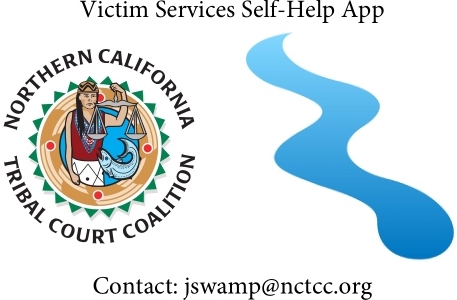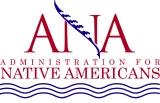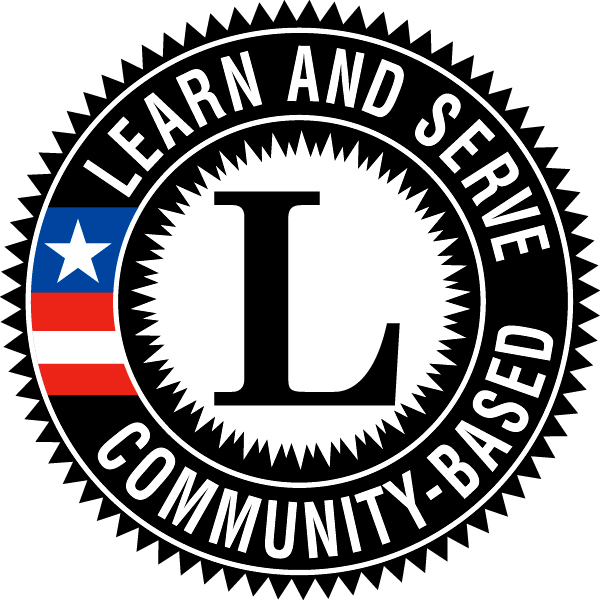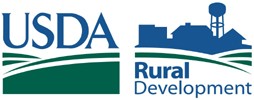-

The National Indian Justice Center, Inc., (NIJC) is an Indian owned and operated non-profit corporation with principal offices in Santa Rosa, California. NIJC was established in 1983 through the collective efforts of the National American Indian Court Judges Association, the American Indian Lawyer Training Program, and the Bureau of Indian Affairs in order to establish an independent national resource for Native communities and tribal government. The goals of NIJC are to design and deliver legal education, research, and technical assistance programs which seek to improve the quality of life for Native communities and the administration of justice in Indian country.
For more than 30 years, NIJC has designed and conducted effective education programs via regional trainings, on-site training and conferences for tribal courts, tribal government, law enforcement, social services, medical personnel, victims assistance programs and other interests throughout Indian country. Some of the programs include alcohol and substance abuse, alternative methods of dispute resolution, child abuse and neglect, domestic violence, Indian youth and family law, juvenile justice, and federal Indian law.
We are not only the pioneers of providing technical assistance to Indian tribes, tribal organizations and government agencies, but we have established ourselves as the true leaders in providing training sessions, on-site consultations, and publication services throughout Indian country.
COURSE ENROLLMENT
The following distance learning courses are available at no cost to participants. Click on the following link to request course enrollment: http://eepurl.com/cbvgdT. If you have any questions, please contact NIJC Program Specialist, Christy Garcia, at (707) 579-5507, christyg@nijc.org or NIJC Distance Learning Project Associate, Carol Oliva, at (360) 374-3359, carololiva@nijc.org. Or you may log-in as a guest for limited access to site resources.
Available courses
 The Northern California Tribal Court Coalition provides free information about victims' legal rights and referrals to tribal, county, state and federal organizations and agencies that can provide assistance. Through the mobile app, NCTCC provides access to one of a kind exhaustive tribal and county-specific resource directory and access to information about victims' rights, self-care information and information about the justice system in tribal communities in Northern California. This course will provide you with an overview of the mobile app and tips on how to use it .
The Northern California Tribal Court Coalition provides free information about victims' legal rights and referrals to tribal, county, state and federal organizations and agencies that can provide assistance. Through the mobile app, NCTCC provides access to one of a kind exhaustive tribal and county-specific resource directory and access to information about victims' rights, self-care information and information about the justice system in tribal communities in Northern California. This course will provide you with an overview of the mobile app and tips on how to use it .- Course creator: Carol Oliva
Technology Tips for Distance Learning Success is a moderated online course provided by the National Indian Justice Center, the pioneer in training and technical assistance for tribal communities nationwide since 1983.
This course is especially designed for California Native people who are interested in improving their skills or pursuing interests new and old through distance learning.
Thanks to the California Consumer Protection Foundation, Community Collaborative Fund for providing a grant to support course development .

- Course creator: Carol Oliva
- Course creator: Christina Tlatilpa

This site provides networking opportunities and informational resources for the Communities Empowering Native Youth Project (CENY), a 2-year capacity building project for Native youth programs.
CENY and this social forum serves Native youth, professionals and volunteers from Native youth serving tribal programs and community- and faith-based organizations in Sonoma, Lake and Mendocino Counties. It is created and moderated by the National Indian Justice Center (NIJC).
CENY is funded by the U.S. Department of Health and Human Services, Administration for Children and Families, Administration for Native Americans, Social and Economic Development Strategies Program Grant No. 90NA8157
NIJC administers the project in partnership with the California Indian Museum and Cultural Center, Indian Child and Family Preservation Program and Sherwood Valley Rancheria, Koolakai Learning Center.
CENY’s goal is to sustain and expand Native youth programs in Sonoma, Lake and Mendocino Counties over the long-term. The project addresses the interest of tribes, organizations and individuals in promoting activities to ensure there are adequate, sustainable and culturally-appropriate programs for Native youth in the tri-county region.

This site provides networking opportunities and informational and distance learning resources for the Activating Native Youth Assets Project.
The project and this social forum site serves Native youth, tribes and professionals and volunteers from Native youth serving community- and faith-based organizations in Sonoma, Lake and Mendocino Counties. It is created and moderated by the National Indian Justice Center (NIJC).
The Activating Native Youth Assets Project is a three-year capacity building initiative funded by the Administration for Children and Families, DHHS, Compassion Capital Fund.
NIJC administers the project in collaboration with the California Indian Museum and Cultural Center (CIMCC) and the Sonoma County Indian Health Project (SCIHP).
The goal of the project is to build our individual and mutual organizational capacity so that we may serve as resources to help strengthen existing Native and non-Native assets for positive Native youth development in our region.
- Course creator: Carol Oliva
Native Youth in Action
A distance learning classroom and social forum for Native Youth in Action program participants. The classroom curricula consists of culturally appropriate curricula on Native American educational, cultural and social issues. This information may assist NYA program participants in setting goals for their service learning activities. NYA program participants are encouraged to add information about their own communities to this distance learning curricula.
- Course creator: Stephanie Lucero
This material was produced under grant SH-17819-08-60-F-6 from the Occupational Safety and Health Administration, U.S. Department of Labor. It does not necessarily reflect the views or policies of the U.S. Department of Labor, nor does mention of trade names, commercial products, or organizations imply endorsement by the U.S. Government.
This course is funded by a grant from the Federal Highway Administration - Accelerating Safety Activities Program (ASAP) and addresses the FAS focus area of Pedestrian Crashes by developing and providing an online educational module on tribal pedestrian road safety audits (PSAs) featuring: (1) a 7 – 10 minute case study podcast about the La Jolla Tribe’s partnership with CPHD to perform a PSA of a known trouble spot in the tribal community and the practices, lessons and outcomes generated by the PSA; (2) instructional resources including PSA guidelines and pedestrian safety countermeasures; (3) lessons designed to help users apply the information; (4) a quiz to help users test their knowledge; (5) links to TA resources; and (6) brief pre- and post-test evaluation surveys.
The California Department of Transportation - Environmental Justice grant program has funded the National Indian Justice Center (NIJC) to create educational resources for California tribal communities to provide them with guidelines and processes for conducting Road Safety Audits (RSA). FHWA will demonstrate how to conduct an effective RSA in a training video that will be designed to cultivate other trainers within tribal communities.A companion online course will be developed to reinforce information and concepts from the video and to foster better awareness among tribal community members of the benefits of RSAs for increasing roadway multi-modal safety.
The Tribal Traffic Safety Justice Liaison Project addresses the Victims of Drunk and Impaired Driving – Underserved Community topic area. Over 36-months, the National Indian Justice Center (NIJC), administrator of a Tribal Transportation Technical Assistance Program (TTAP), will develop and pilot a program that provides comprehensive training and technical assistance (TTA) resources to tribal and non-tribal justice system personnel to help them provide more effective and culturally competent services to American Indian and Alaska Native (AI/AN) victims of alcohol-related motor vehicles crashes.
- Course creator: Carol Oliva
This course was funded by a grant from the California Environmental Protection Agency's Environmental Justice Small Grant Program.
The project targets consultation and coordination strategies between
- Course creator: Benjamin Myers
- Course creator: Christina Tlatilpa
The National Indian Justice Center (NIJC) is developing an online course based upon its Working Effectively with Tribal Governments Guidebook and Training Session developed pursuant to an Environmental Justice grant from the California EPA.
This course seeks to promote tribal government involvement in the environmental issues that affect them by cultivating positive government-to-government relationships between tribes and other governmental entities on cross-jurisdictional issues. It will educate personnel from other environmental agencies on tribal government sovereignty and the status of Indian lands will increase awareness of the complex jurisdictional maze resulting from historic events and laws and policies asserted over Indian Country. Technical capacity in these subjects is essential for effective intergovernmental consultation and coordination. When tribes perceive that other agencies understand and are sensitive to their concerns, they will be more empowered and likely to participate in environmental decision making as equal partners. Without such basic awareness instilled in other governmental agencies, tribal governments will continue to be disadvantaged in the environmental regulatory process on issues of importance to their communities.

This course is designed to increase awareness among tribal community solid waste management personnel concerning applicable environmental laws and solid waste management strategies.
Course for Planning of New Institutions (PONI) for Tribal Communities conference materials. This course is under construction. It may be accessed through a technical assistance session with NIJC or EKM&P staff.This course was developed using materials approved for the PONI conference.
The Correctional Systems and Correctional Alternatives on Tribal Lands Distance Learning course is funded through grant number2011-IP-BX-K001 from the Bureau of Justice Assistance, Office of Justice Programs, U.S. Department of Justice. Neither the U.S. Department of Justice nor any of its components operate, control, are responsible for, or necessarily endorse, this Web site (including, without limitation, its content, technical infrastructure, and policies, and any services or tools provided).
The goal of the Preparing a Healthy Path: Planning and Implementing Tribal Adult Healing to Wellness Courts for Participants Who Have FAS/FAE distance learning curriculum is to increase the capacity of tribal communities nationwide to plan, implement and operate tribal adult drug courts to meet the unique needs of participants who have FAS/FAE in order to reduce crime in Indian Country.
This online course is funded through a grant from the Bureau of Justice Assistance, Byrne Competitive Grant Program, Office of Justice Programs, U.S. Department of Justice. Neither the U.S. Department of Justice nor any of its components operate, control, are responsible for, or necessarily endorse, this online course (including, without limitation, its content, technical infrastructure, and policies, and any services or tools provided).

- Course creator: Kelly Myers
A practice course for teaching Moodle at the summer camp.
UPDATE! The Tribal Crash Data Online Tool has been updated to include additional Tribal Road Safety Data information, as follows: .
Collision Data Collection
1. Tribal Crash Data Online Tool
2. Collision Data Collected by CHP
Traffic Safety Analysis and Mitigation Evaluation on Tribal Roads (Rafat)
1. Types of Collisions on Tribal Lands
2. Utilization of Collision Data towards Informed Decisions
3. Mitigation Elements
4. Examples of Tribal Assessments
5. Safety Assessment Resources
6. Barriers and Opportunities Discussion